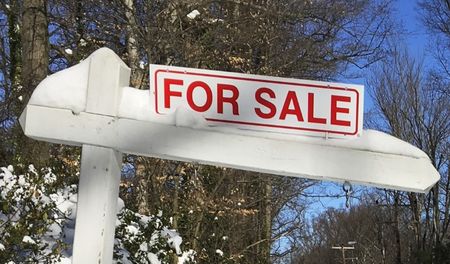Trump allies working on plans to privatize Fannie Mae and Freddie Mac – WSJ
2024.09.13 11:42

Investing.com — Former figures and bankers who served in Donald Trump’s prior administration have been discussing plans to end Washington’s control over mortgage-finance groups Fannie Mae and Freddie Mac, the Wall Street Journal has reported.
Citing people familiar with the matter, the paper said the talks have been underway since at least last spring and have included contacting investment managers for advice on how to close the deal.
Among those people involved in the discussions are former National Economic Council director Larry Kudlow and former White House presidential personnel office director John McEntee, the WSJ said.
A spokesperson for the Trump campaign told the WSJ that Trump has never mentioned this topic during his campaign.
According to bankers’ estimates cited by the WSJ, the government’s current stakes in Fannie and Freddie could be worth hundreds of billions of dollars. The sales could let the government offload more than $100 billion in securities, which would top the largest stock and bond offerings in history, the WSJ reported.
Fannie Mae and Freddie Mac did not respond to a request for comment, Reuters said.
The WSJ said Trump allies have discussed possibly having the Treasury Department partially support some of Fannie and Freddie’s loans through a so-called standby guarantee.
As crucial backstops for 30-year home mortgages in the US, Fannie Mac and Freddie Mac play a crucial role the country’s real estate market.
The firms, which were founded by Congress and operate as for-profit corporations with private shareholders, aim to expand the home lending market by purchasing home loans from private lenders and then repackaging them as mortgage-backed securities.
Under Trump, previous efforts were made to privatize Fannie and Freddie, but they proved unsuccessful. Trump’s allies and some Republicans have argued that such a move would help bring down the US deficit and bring money back to taxpayers, the WSJ said.
Opponents, however, have said that privatizing the two companies would shrink the access to credit for home buyers and augment taxpayers’ risk, the paper added.
Reuters contributed to this report.








